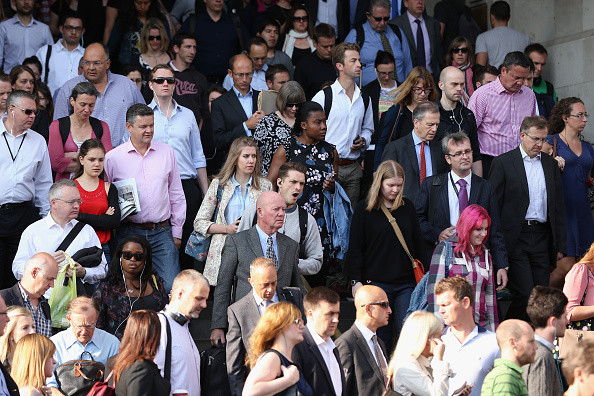UK parliament to debate strike action law reforms

The UK parliament will for the first time debate the Conservative party's new bill on tightening strike action today (15 July) to make it harder for unions to disrupt key public services.
The bill - The Trades Union Bill – covers strike action for core public services such as health, transport, fire services, education, border security and energy.
It has angered unions, which have accused the government of trying to "neuter the unions", but the move has received the support of businesses.
"Unite is not going to see itself rendered toothless by passively submitting to unjust laws. If the Tories wish to put trade unionism beyond the law, then they must take the consequences."
The move is also seen as likely to hit the opposition party Labour which is heavily funded by unions.
Among others, the bill proposes:
- strike action will now need the support of 40% of eligible union members proceed. The current law allows strike action if it is backed by a simple majority of union members voting, regardless of turnout;
- there should be a minimum 50% turnout for strike ballots to be valid;a
- a time limit of four months on a mandate for industrial action following a ballot;
- removal of current restrictions on using agency workers to cover for strikers;
- tackling the "intimidation" of non-striking workers; and
- union members have to opt in if they want to pay a political levy as part of their fees instead of having to opt out.
The House of Commons will discuss the general aims and principles of the bill at the second reading of the bill today afternoon, the BBC reports.
In its election manifesto, the Conservative party promised to reform strike laws in the country, and delivered on its promise with an announcement on the legislation in May. The party sought to introduce the reforms under the previous coalition government but this was blocked by its partner the Liberal Democrats.
The government says the new bill will balance the right to strike with the rights of the working people and businesses. Unions however said the changes will make legal strikes close to impossible, given the tougher criteria imposed before any strike action can proceed.
Business Secretary Sajid Javid said: "Trade unions have a constructive role to play in representing their members' interest, but our one nation government will balance their rights with those of working people and business.
"These changes are being introduced so that strikes can only happen when a clear majority of those entitled to vote have done so and all other possibilities have been explored," the minister said.
Industry supports the move
British Chambers of Commerce policy and external affairs executive director Dr Adam Marshall said the right to strike "must be exercised with the greatest restraint."
"Businesses will see this as a sensible piece of legislation that carefully balances the rights of those wishing to withhold their labour, against the rights of those who rely on access to essential services.
The Confederation of British Industry (CBI) director general Katja Hall said the bill was "an important, but fair step to ensure that strikes have the clear support of the workforce."
Unions say move "slippery slope towards worse rights"
The TUC general secretary Frances O'Grady says the bill "is a slippery slope towards worse rights for all", adding that it would enable employers to "stick two fingers up" to workers by bringing agency staff to break any strikes.
Similarly, Mick Whelan, the general secretary of the train drivers' union Aslef said the move "smacks of Germany in the 1930s" and accused the government of trying to "neuter the unions."
The UK's biggest trade union, United, took a step further in countering the new proposed bill. It has deleted the words "so far as may be lawful" from its constitution.
Len McCluskey general secretary said: "Unite is not going to see itself rendered toothless by passively submitting to unjust laws. If the Tories wish to put trade unionism beyond the law, then they must take the consequences.
"We are ready for the fight, and we will, I believe, find allies throughout society, amongst everyone who cares for freedom and democracy."
Andy Burnham, one of the candidates for the Labour leadership, said the government's plans were "politically motivated" and that it "is part of a campaign of demonization of trade unions."
According to the Office for National Statistics, last year, 788,000 working days were lost in the UK by people who did not work due to their involvement in a dispute at their workplace.
© Copyright IBTimes 2025. All rights reserved.






















